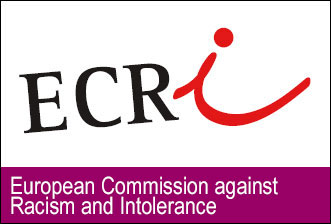Challenges faced in the current institutional and budgetary environment
Seminar of the Council of Europe’s Anti-Racism Commission (ECRI) for national independent authorities combating racism and intolerance
Date: 30 - 31 May 2013
Venue: Strasbourg – Council of Europe, Agora Building
Organised by: the European Commission against Racism and Intolerance (ECRI) of the Council of Europe
Participants: representatives of member States’ independent authorities (specialised bodies) combating racism, intolerance and discrimination on grounds such as ethnic origin, colour, citizenship, religion and language (racial discrimination), members of ECRI, representatives of national Ombudspersons and national human rights institutions, as well as representatives of international organisations and the European Network of Equality Bodies (EQUINET).
Topic: National specialised bodies, which have made a distinct contribution to the fight against racism, racial discrimination, xenophobia, antisemitism and intolerance in many member States, are today confronted with a variety of different challenges. Some of them experience limitations to their independence, others have become part of larger bodies with wider objectives in the field of human rights. In some countries, the fight against racism and racial discrimination is entrusted to Ombudspersons. In others, responsibility for this task is shared between Ombudspersons, newly established equality authorities and, sometimes, human rights institutions. Due to the economic crisis, many of these bodies report additional financial and personnel’s cuts to their budget, resulting in a severe downscaling of activities and a potential loss of effectiveness. ECRI wanted to discuss with the specialised bodies the impact of these trends on their work, with a view to making proposals for corrective action at European and/or national level.
Specific objectives: The seminar addressed the following questions:
- How could specialised bodies, subject to direct or indirect government control over their action, achieve full independence?
- How can specialised bodies combine de jure and de facto independence?
- How do specialised bodies subject to mergers or mandate-extension ensure that the expertise they have built in the areas covered by ECRI’s mandate is not lost?
- Are mergers accompanied by cuts? Does the extension of their mandate imply increased resources? What is the impact of less funding on their ability to undertake independent action?
- Can Ombudspersons deal with racial discrimination complaints concerning the private sector?
- How can the risk of duplication of effort be eliminated in situations where different bodies deal with similar issues?
- How do specialised bodies ensure geographical accessibility?
- Are the relations between specialised bodies and NGOs advanced enough? In which cases do specialised bodies involve civil society in their actions?
Documents



